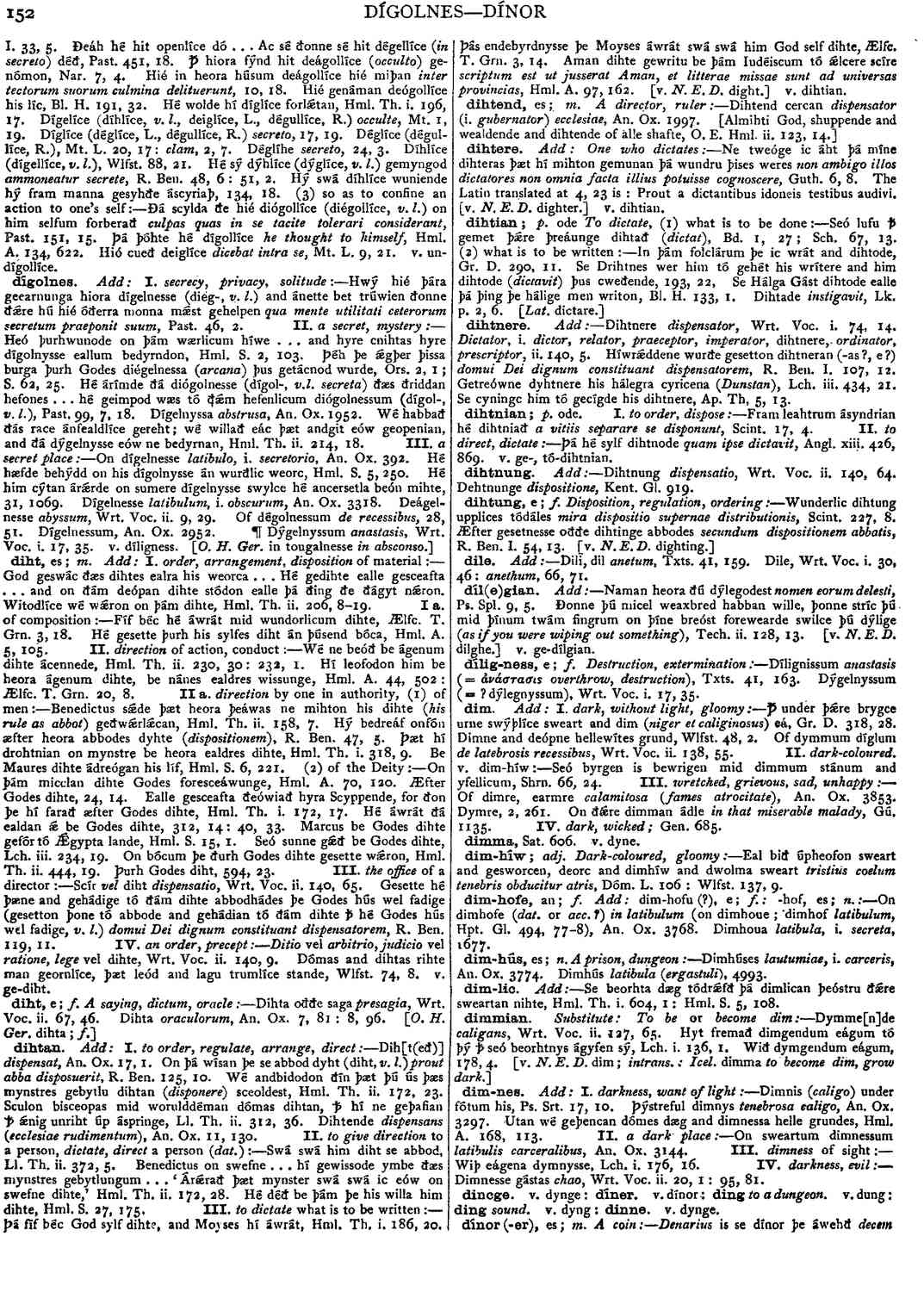dihtan
-
Dih[t(eð)]
dispensat,
- An. Ox. 17, 1.
-
On þá wísan þe se abbod dyht (diht,
v. l.) prout abba disposuerit,
- R. Ben. 125, 10.
-
Wé andbidodon ðín þæt þú ús þæs mynstres gebytlu dihtan (
disponere
) sceoldest,- Hml. Th. ii. 172, 23.
-
Sculon bisceopas mid worulddéman dómas dihtan, ꝥ hí ne geþafian ꝥ ǽnig unriht úp áspringe,
- Ll. Th. ii. 312, 36.
-
Dihtende
dispensans (ecclesiae rudimentum ),
- An. Ox. 11, 130.
-
Swá swá him diht se abbod,
- Ll. Th. ii. 372, 5.
- Benedictus on swefne . . . hí gewissode ymbe ðæs mynstres gebytlungum . . . 'Árǽrað þæt mynster swá swá ic eów on swefne dihte,' Hml. Th. ii. 172, 28.
-
Hé déð be þám þe his willa him dihte,
- Hml. S. 27, 175.
-
Þá fíf béc God sylf dihte, and Moyses hí áwrát,
- Hml. Th. i. 186, 20.
-
Þás endebyrdnysse þe Moyses áwrát swá swá him God self dihte,
- Ælfc. T. Grn. 3, 14.
-
Aman dihte gewritu be þám Iudéiscum tó ǽlcere scíre
scriptum est ut jusserat Aman, et litterae missae sunt ad universas provincias,
- Hml. A. 97, 162.
Bosworth, Joseph. “dihtan.” In An Anglo-Saxon Dictionary Online, edited by Thomas Northcote Toller, Christ Sean, and Ondřej Tichy. Prague: Faculty of Arts, Charles University, 2014. https://bosworthtoller.com/42778.
Checked: 0